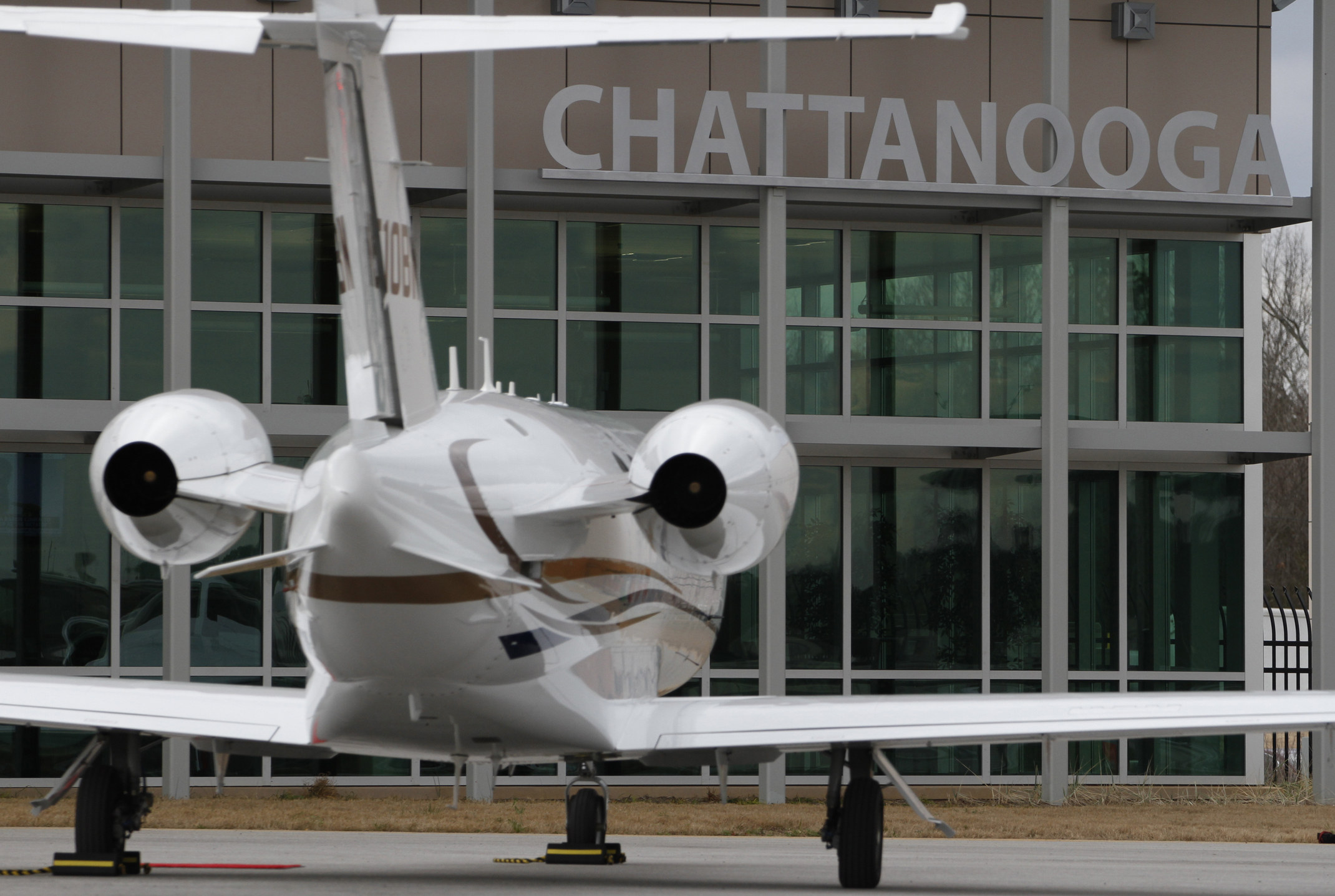Chattanooga's airport board on Friday approved a $5.07 million expansion over the objections of existing fixed-base operator TAC Air, which has blasted the expansion as a waste of taxpayer dollars.
Chattanooga Airport officials defended the new building as much-needed capacity in a growing city. The facility will include a 20,000-square-foot hangar and 13,200-square-foot office complex when it is completed in about eight months,
But Pam McAllister, general manager of TAC Air in Chattanooga, sharply criticized the expansion, which will directly compete with her company on the airport's east side.
"Taxpayers are funding this atrocity out there, and it's making it very difficult for us," she said.
So far, the Wilson Air expansion has cost almost $750,000 in operating losses since opening, she said, not including the millions of dollars to build the facility.
But those figures don't tell the whole story, said Terry Hart, president and CEO of the Chattanooga Metropolitan Airport Authority.
Hart argued that competition from the new facility was needed to improve service quality and push down fuel prices. Under TAC Air's de-facto monopoly, customers were driven away from the Scenic City, he said.
"The impact to the airport was a loss of revenue from aviation business moving to surrounding markets," Hart said. "Air service was threatened from uncompetitive pricing, and corporate aviation users were tankering fuel into Chattanooga to avoid paying the high price of local fuel."
Since the first phase opened in August 2011, Hart said fuel prices have dropped by more that $1 per gallon and hangar rent has fallen.
"From an inaccessible 25-acre plot on the far west side of the airfield, we have created a hub of economic activity for the airport, complete with a 2-mile road, a tanker base for the U.S. Forest Service, a state-of-the-art airport fire station, a LEED certified FBO complex, and a soon-to-be two megawatt solar farm," he said.
The expansion, which has moved in fits and starts through the last decade, never has been about immediate financial gratification, said board member Mike Mallan. It was about making Chattanooga a better place.
"Our decision have been calculated to anticipate growth in aviation activity and to create a best-in-class array of assets," he said, calling the new hangar a "front door for private aviation visitors and for business prospects visiting our city."
Like TAC Air's facilities, the Wilson Air terminal is being built mostly through taxpayer dollars. But unlike TAC Air, which absorbs all of its own profits and losses, the Chattanooga Airport Authority is financially responsible for the success or failure of the new terminal, while Wilson Air simply receives a flat fee to run it.
That leaves TAC Air in the position of competing directly with its landlord, McAllister said.
"The airport authority, to help cover the losses for this FBO, they've already raised the parking fees, and then they turned around and charged the airlines higher landing fees," she said.
The group has complained to the Federal Aviation Administration about what it calls unfair competition, but has yet to receive a reply.
